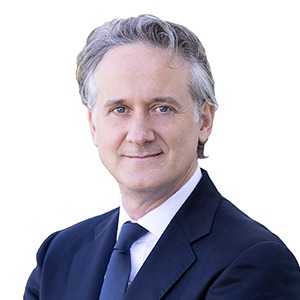Center for Cancer Prevention and Early Detection
The Center for Cancer Prevention and Early Detection unites investigators from all academic disciplines across City of Hope — from mathematicians, bioinformaticians and molecular biologists to clinicians — to translate research on the prevention, early detection and monitoring of cancer into clinical practice.
By combining mathematical modeling, statistical analysis and AI with experimental, epidemiological and sequencing data, Cristian Tomasetti, Ph.D., has provided the first quantitative evidence for the large role that normal, e.g., endogenous, accumulation of somatic mutations in the cells of the human body plays in causing cancer.
The focus of the center is to produce key research findings, as well as novel technologies, for the prevention and the early detection of cancer, using noninvasive blood tests and imaging, which have the potential to detect cancers years before conventional diagnostic methods. The center comprises three branches: City of Hope’s Division of Mathematics for Cancer Evolution and Early Detection, TGen’s center for early detection technologies and City of Hope’s clinical research branch for early detection.
Our Research Highlights
- Early multicancer detection
- Monitoring for recurrence
- Modeling cancer evolution
- Cancer etiology
- Artificial intelligence and imaging for detecting cancer
How We Make a Difference
Historically, less than 10% of funding is spent on cancer prevention. The early detection of cancer and precancer lesions is where our brightest future lies. Either we succeed at detecting cancer early, or we will always deal with late-stage cancers that metastasize across the body. The center advances technologies that make earlier detection possible, leading to lower mortality and a paradigm shift in the war against cancer.
Tomasetti’s work is recognized internationally for his contributions to the current understanding of cancer etiology and tumor evolution. His lab produces models of risk and evolution, and he currently spearheads new technologies and algorithms for the early detection of multiple cancers via a simple blood test or imaging, as well as for monitoring recurrence in patients.
